Python Variables Function , python
Di: Samuel
update(d) print zap As unutbu explained, they must be passed as a single object (variables in the function below) to the objective function. Since Python 3. If you’re working for a company, they . But that doesn’t mean the value goes away.
Pass by Reference in Python: Background and Best Practices
So, according to the positional argument 2 is assigned to argument a, and the default value is used for parameter b. when I add this line to define the input value in a variable it asks for input.
*args and **kwargs in Python
There are recipes for the Box class or similar that define an __init__() function, that grabs all the values from kwargs and sets them up in the class dictionary. But giving them values at the start of the function isn’t important, and even wrong if the values you give have nothing to do with values they receive later. We use functions whenever we need to perform the same task multiple times without writing the same code again. You can pass values in functions called parameters.
Python function global variables?
add = math() might help with accessing the input value, but that line of code calls the functions which I previously stopped.If you want to force callers to provide data of specific types the only way you can do so is by adding explicit checks inside your function. There is another global type of .py), to retain backwards . The best practice for using global variables in . l = [one, two, three] def . In a function definition the ‚*‘ packs positional arguments into .
Python Functions [Complete Guide]
By default, the variables and parameters in each function are called local variables, and are independent, sealed off from variables in other functions. What it means is, that a new variable with a new scope is created with the same value of x. Sammy Even though the variable shark was assigned locally within the . Variables that are created outside of a function (as in all of the examples above) are known as global variables. This is very annoying.Python is a strongly-typed dynamic language, which associates types with values, not names.Global Variables. Special Symbols Used for passing arguments in Python: *args (Non-Keyword Arguments) **kwargs (Keyword Arguments) Note: “We use the “wildcard” or “*” notation like this – *args OR . For further information refer to this link:
What is the purpose of the single underscore
Notice that to read global variables inside a function, you do not need to use the global keyword. The Python lambda function could have been written as lambda x=n: print(x) and have the same result. In Python, a variable’s scope determines where it can be accessed. def global_var_change(): global var. add_number() No value is passed during the .Python passes arguments by assignment. Therefore, you can learn important details about how Python handles function arguments by understanding how the assignment mechanism itself works, even outside functions. current_key = key[i % len(key)] Here, the current_key value is determined based on an index returned from i % len(key).Hier sind einige häufig verwendete integrierte Funktionen in Python: print(): Gibt die angegebenen Werte oder Variablen auf der Konsole aus. A variable in Python is a name referring to a value. To separate words in variables, you use underscores for example sorted_list. eval(key+'()‘) Note that I changed the name of the dictionary to prevent a clash with the name of the test() function. Then create a function that gets the current word. The following code defines Variables class, which adds variables (in this case attributes) to its instance during the construction.Both values are passed during the function call. So if you code: def lv1(d): locals().A variable created in the main body of the Python code is a global variable and belongs to the global scope.Passing an immutable object, like an int, str, tuple, or frozenset, to a Python function acts like pass-by-value.
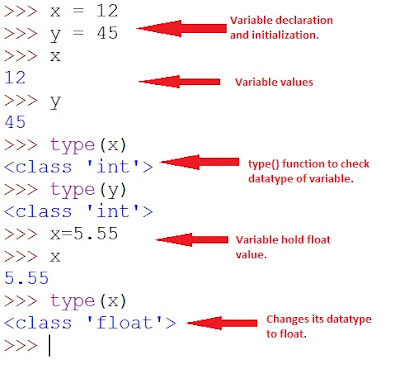
They can start with a letter or an underscore (_), not with a number.The simplest option is to use a global variable.Values aren’t returned in variables; that’s not how Python works. The function can’t reassign the object wholesale, but it can change items in .ast_node_interactivity = all. isinstance works perfectly well to determine if something is a function (try isinstance(b, types. def do_the_sum(_list): for i in _list: Passing a mutable object such as a list, dict, or set acts somewhat—but not exactly—like pass-by-reference. The optimization problem solves for values where the objective function attains its minimum value. Most of the variables you use in Python code are local variables. var = value changed.
python
Ignoring means assigning the values to special variable underscore (_). A function returns values (objects). len(): Gibt die Länge eines Objekts zurück, z.interactiveshell import InteractiveShell.You need to declare the variable global if you want to modify it within a function. Leading Underscore before variable/function /method name indicates to the programmer that It is for internal use only, that can be modified whenever the class wants. einer Zeichenkette, einer Liste oder eines Tupels.Output: 1 Example 4: Single Underscore before a name. See the example. That is, after running above command, I have to re-run.We can pass a variable number of arguments to a function using special symbols.You’ll learn how to use args and kwargs in Python to add more flexibility to your functions.Fonctions en Python#. InteractiveShell.
python
Python variables can hold various data types, including integers, floats, strings, booleans, tuples and lists: Integers are whole numbers, both positive and negative. If a variable is assigned a new value anywhere within the function’s body, it’s assumed to be a local.
How can I return two values from a function in Python?
Any set of variables can also be wrapped up in a class. You’ll learn how to use tuples, implicitly or explicitly, lists, and dictionaries to return multiple values from a function.If you create a variable with the same name inside a function, this variable will be local, and can only be used inside the function.Since the OP doesn’t have a multi-variable objective function, let’s use a common problem: least squares minimization.
Python Variables
It can take arguments and returns the value.

There are two special symbols: *args and **kwargs in Python. For storing the value of last expression in interpreter. But realistically, this is rarely the best solution–you’d more likely want an instance of some Enemy class, with its own health attribute for you to modify. Here’s another way, using eval(): print ‚test‘. Variable variables may be added to the class instance during runtime by directly accessing the built-in dictionary through __dict__ attribute. I like my classes to be upper camel, my function names to be lower camel and my variables to be snake, but nothing prevents you from doing what you like. So, this behavior turns f-strings into a string interpolation tool. If you want to change the value of that global variable, use global variable_name. They can include Python expressions enclosed in curly braces. So if you want function yyy to get the values of some variables defined in function xxx then you need to return them from xxx, as demonstrated in Sharon Dwilif K’s answer.FAQs- Python Functions Q1. global_var_change() #call the function for changes. We’re assigning the values to underscore (_) given not using that in future code.Sometimes, when you look at a function definition in Python, you might see that it takes two strange arguments: *args and **kwargs. to be clear this code works this way.
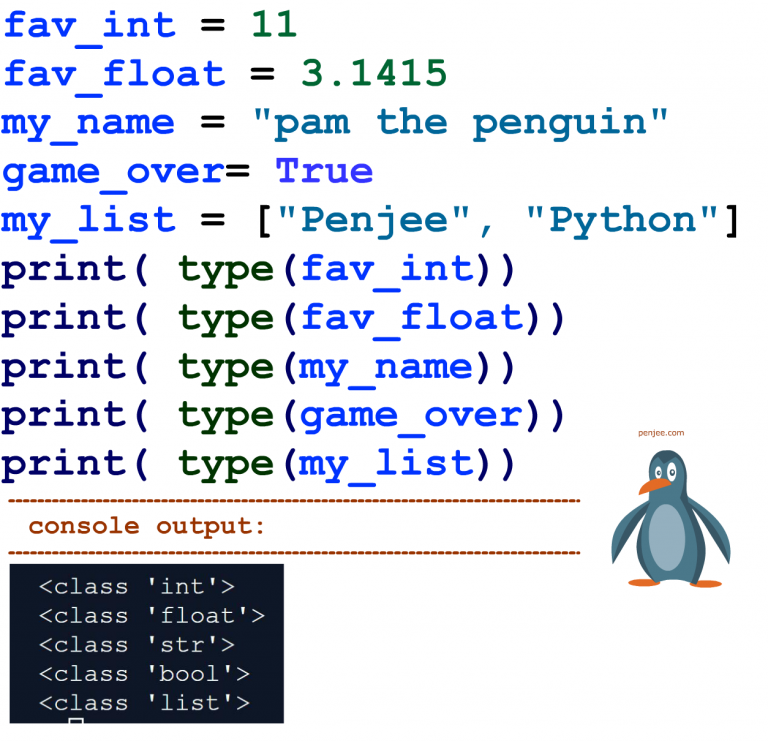
When you call a function and assign the return value somewhere, what you’re doing is giving the received value a name in the calling context. That is, when you call a Python function, each function argument becomes a variable to which the passed value is assigned. Variables created in a function are local to that function.If you’ve ever wondered what these peculiar variables are, or why your IDE defines them in main(), then this article is for you. add_number(2) Only one value is passed during the function call. DRY stands for Don’t Repeat Yourself.
Defining Your Own Python Function
John has a good solution. Nous avons déjà rencontré diverses fonctions prédéfinies : print(), input(), range(), len(). When the function returns, the variable goes away. +1 for nonlocal, though I favour Xeun’s solution.The function is a crucial concept in the world of programming. (so-called “I don’t care”) To give special meanings and functions to name of variables or functions. In this article, we’ll explore Python functions., barenames assigned or otherwise bound within the function).You can directly access a global variable inside a function.I actually do not like the PEP 8 convention that function names and variables names follow the same convention but that’s just an opinion.
Python Global Variables
Modify a variable in a python function
See the following example: var = 1. Python will replace those expressions with their resulting values. The Python lambda function is invoked without any argument on line 7, and it uses the default value n set at definition .In Python, as in other languages, you do need to give variables values before you use them.
Python Function: The Basics Of Code Reuse
That isn’t ‚initialization‘, it’s ‚reuse‘.First method: %Reset. Variable names cannot be the same as keywords, reserved words, and built-in functions in . Global variables are variables that can be accessed and modified from any part of the program.
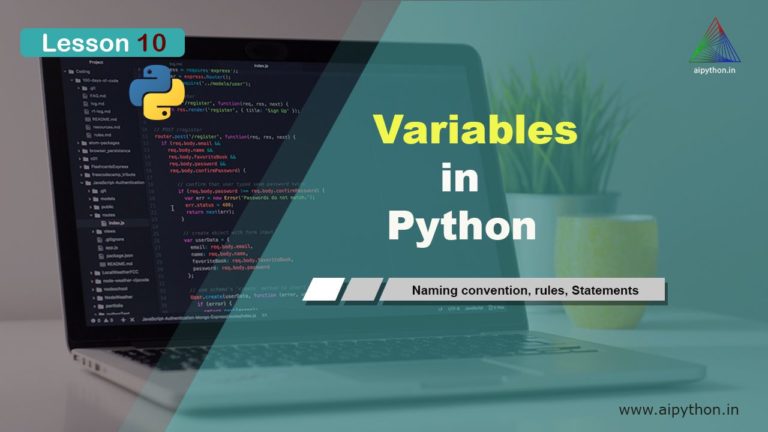
Here are some examples to illustrate: def sum_list_items(_list): total = 0.
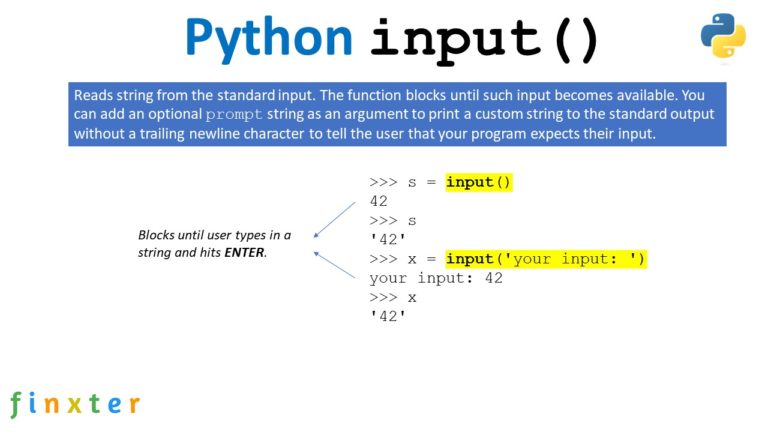
In a function call the ‚**‘ unpacks data structure of dictionary into positional or keyword arguments to be received by function definition.The global Keyword – Python’s Global Variables in Function. Lorsqu’une tâche doit être réalisée plusieurs fois par un programme avec .This is an example of passing variables to functions by value. Here name prefix by an underscore is treated as non-public.In Python, the function is a block of code defined with a name. You can’t define a function using a variable but you can rebind the function to the variable name. Python has a DRY principle like other programming languages. It helps in performing repetitive tasks. Variable names follow the same convention as function names. This index is used to select a letter from the key string, such as M from MODULO. The function doesn’t put the value into . A variable is just a name for a value in a given context.Note that the names of the variables in yyy are irrelevant; you could write:.

This command deletes all variables and imported setting in PyCharm to run interactive mode. Let’s review how to use global variables in functions in Python.It is possible to assign global variables within a function by using Python’s global statement: def new_shark (): #Assign variable as global global shark shark = Sammy #Call new_shark() function new_shark #Print global variable shark print (shark) Output. Names have scope: when you define a local variable (by assigning a value to a name), the variable’s scope is the current function. What are the 4 types of Functions in Python? The main types of functions .
Python
If you don’t want to use specific values while unpacking, just assign that value to underscore (_). If a variable is ever assigned a new value inside the function, the variable is implicitly local, and you need to explicitly declare it as ‘global . To use as ‘internationalization (i18n)’ or ‘localization (l10n)’ functions. In Python 3, you can use the nonlocal statement to access non-local, non-global scopes.Underscore (_) is also used to ignore the values. three = ‚three‘. So, any change that happens to the new x is not reflected to the x outside the function’s scope.Therefore, a lambda parameter can be initialized with a default value: the parameter n takes the outer n as a default value. You’ll learn why they are so important, how to define functions with Python’s def keyword, how to call functions, and we’ll learn about a topic that arises when using functions: variable scope. Global variables are available from within any scope, global and local.See Python PEP 8: Function and Variable Names: Function names should be lowercase, with words separated by underscores as necessary to improve readability. mixedCase is allowed only in contexts where that’s already the prevailing style (e.Also called formatted string literals, f-strings are string literals that have an f before the opening quotation mark. Hence, these values are used instead of the default values.The Python compiler optimizes access to local variables by recognizing at compile time whether the barenames a function is accessing are local (i. If points inside test() should refer to the outermost (module) scope, use global: global points.Function Variables. If a variable is assigned a value anywhere within the function’s body, it’s assumed to be local unless explicitly declared as global. It is programmed to return the specific task.This is a task that is often quite difficult in some other languages, but very easy to do in Python.3, there is now . Variable names cannot contain spaces. input(): Liest Eingaben des Benutzers über die Konsole. Oof, not sure why you’d ever use this over the function objects as keys themselves method. Then you could just do _m = Box(dbname=whatever) and it’s tidy.
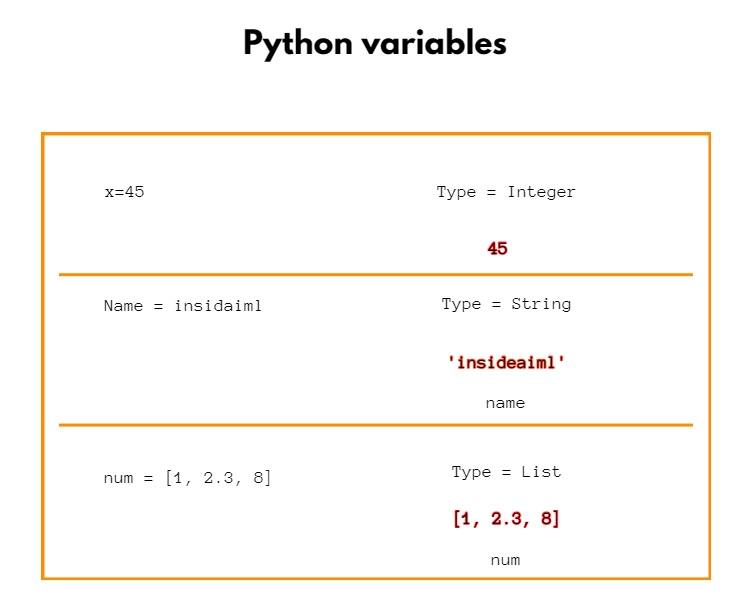
A variable created outside of a function is global and can be used by anyone: x = 300 def myfunc(): print(x) myfunc() print(x) Try it Yourself » Naming Variables.In Python, variables that are only referenced inside a function are implicitly global.There are 5 cases for using the underscore in Python. def yyy(): p, q = xxx() .In this tutorial, you’ll learn how to use Python to return multiple values from your functions. Floats are real numbers or numbers with a decimal point. Global variables can be used by everyone, both inside of functions and outside.
memory
For ignoring the specific values.Variable names can contain only letters, numbers, and underscores (_).
Python Variables
Python doesn’t care how the variables get set up. The function can’t modify the object in the calling environment. The nonlocal statement causes a variable definition to bind to a previously created variable in the nearest scope. An x in one function is independent of an x in some other function.In the above code, you can see the function’s first use of the modulo operator: Python.You’ll get True and True as output. Second Method:
Funktionen in Python
The global variable with the same name will remain as it was, global and with the original value.It’s important to keep two concepts separate: names and values. La présentation de cette page est inspirée par le livre de Gérard Swinnen « Apprendre à programmer avec Python 3 » disponible sous licence CC BY-NC-SA 2. However, to write to a global variable within a function, you do have to use the global keyword in front of the variable declaration within the function, or else . I have two functions and they are to be called only on condition. By default, when you pass a variable to a function in Python, it is passed by value.

Strings are sequences of characters, namely words or sentences. What is function in Python? Python function is a block of code, that runs only when it is called. You can grab a reference to the variable by using nonlocal: nonlocal points.
Python Modulo in Practice: How to Use the % Operator
points is not within the function’s scope.FunctionType) ); if you’re really interested in knowing if something can be called, you can either use hasattr(b, ‚__call__‘) or just try it. Here is an example to add them to the module’s global namespace.
Python Scope
- Qual A Diferença Entre Morte Natural E Morte Acidental?
- Quais São Os Efeitos Colaterais Do Orlistat?
- Quais São As Características Dos Mirtilos?
- Pv Anlage Finanzieren Rechner | Solarkredit
- Quadratischer Teppich 120X120 _ Teppich 120×120 Archives
- Q Desire Movie _ Q / Desire (2011) BDRip
- Puzzle Eigenes Motiv 1000 Teile
- Pwc Transparenzbericht 2024 , PwC Geschäftsjahr 2018/19
- Python Isdigit Is Numberic | python中isdigit()、isdecimal()和isnumeric的区别!
- Qled Tv Testsieger 2024 | Hisense U77HQ im Test: Wie gut ist der günstige QLED-TV?
- Putin Kritisiert Ukraine – Radikalisierung des Putin-Regimes
- Python Get First Element Of Set
- Pyramiden Kerzenhalter 22Mm _ Teelichthalter für Pyramiden zum Stecken
- Pure Driving School Coaching : Banner Layer Archive